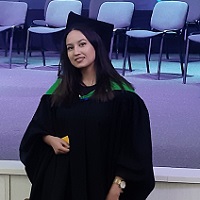LLM in INTERNATIONAL COMMERCIAL LAW
COURSE OVERVIEW
54,439,200 UZS
per course
75,870,000 UZS
per course
1 year - full time
2 years - part time
Classes start at 6:30 PM
Course description
The LLM in International Commercial Law course provides an overview of the main commercial law issues that practitioners could expect to encounter on a regular basis. The course is unique in Central Asia in terms of providing students with an opportunity to study commercial law in accordance with international standards.
The LLM in International Commercial Law course is a uniquely invigorating programme, balancing the best of a rigorous, traditional legal education with a contemporary perspective. The areas of specialisation address today’s most important business and legal challenges, including the study of evolving commercial relationships in the international arena, the role and impact of electronic commerce, the resolution of commercial disputes, and the gradual harmonisation of international commercial law. You will have the opportunity to explore your own ideas, gain knowledge, and develop transferable skills in a supportive environment.
How you will study
The learning on this course is a partnership between the student, their peers and the teaching team. It is a mix of timetabled activity and student’s own personal study. “Scheduled Contact/Activity Time” (i.e. “Contact Hours”) involves interaction with, or supervision from, teaching and associated staff and the activities they set up for students. It may be face-to-face or mediated through other channels such as the Intranet.
Alongside the scheduled studies, students’ “independent” study is a key learning skill for academic study and future employability. As part of the course, you will be expected to work independently in various forms such as group collaborative tasks, research, reading, revision, assessment preparation, projects that feed into presentation and debates. You will be encouraged, guided and supported towards developing skills as an independent critically aware learner. You should expect each module to have both specified contact hours and independent learning.
To summarise, very broadly, a student’s study activity will break down into:
- Scheduled contact/activity time (lectures, seminars, tutorials, supervisions and other directed activities); and
- Structured independent study (such as preparing for scheduled learning activity).
Course structure
The LLM in International Commercial Law consists of core and optional modules. In order to be awarded a degree, students must study at least 180 credits. The course structure is validated by the University of Westminster (UK) every five years but it is subject to change each academic year following feedback from a variety of sources.
- Foundations in International Commercial Law
- International Investment Law and Arbitration
- Dissertation
Award of Degree: LLM in International Commercial Law (180 credits)
Choose either 5 options or 4 options plus one electives
- Law of International Sales
- International Banking Law and Regulations
- E-Commerce Law
- The Law of World Trade Organisation
- International Taxation Law
- International Project Finance Law
- International Construction Law
- One elective from the WIUT Post-graduate courses
Award of Degree: LLM in International Commercial Law (180 credits)
WHY STUDY THIS COURSE?
Unique international programme
The LLM in International Commercial Law is the only available postgraduate programme in legal studies which offers a UK degree in Uzbekistan.
ENTRY REQUIREMENTS
Applicants should normally hold an Undergraduate degree (or equivalent) from a recognised higher education institution with a minimum of a second lower class honours (2:2 or equivalent). Applicants without a formal higher education qualification or a formal qualification that is not at an equivalent academic standard, may be considered if the following conditions apply:
- They are or have been in employment where their role is in the area of the course and involves a high level of analysis and critical thinking.
Applicants must have:
Had their first or second degree (or equivalent) taught and assessed in English; or
IELTS with an overall score of at least 6.5 with a minimum of 6.0 in writing or another English Language Test recognised by the University of Westminster; or
The required pass level on the WIUT Pre-sessional Academic English Course for PG studies: cad.wiut.uz
We accept the TOEFL (IBT (In person test) for entry to our programmes. We also accept TOEFL ‘My Best Scores’ where it relates to TOEFL iBT test results.
Please note that the TOEFL Home Edition (Online test) is not accepted for entry to WIUT degree programmes.
TOEFL should be 88 overall with a minimum of 21 in Writing
CAREERS
The course equips students for the practice of law in a specialised area, helping students to fulfil necessary professional requirements. Graduates are employed in specialist legal practices, banking and finance, insurance, transport, shipping, management, in-house legal work, import and export, insolvency practice, dispute resolution, consultancy, legal and professional training, the diplomatic service, international organisations, national governmental organisations, the wider public sector and academia.

COURSE LEADER
Khasan Sayfutdinov, Ph.D.
Khasan has a Ph.D. and LLM from the School of Law, Xiamen University, China. The topic of his doctoral dissertation was “Study on the Role of Bilateral Investment Treaties in the attraction of the Foreign Direct Investment to China”.
He has been teaching International Economic Law for undergraduate and graduate students since 2017 and has supervised a number of students who undertook their dissertations in international investment and trade law.
His latest research works focus on the areas of law of the World Trade Organisation and bilateral investment treaties. As the course leader , he is responsible within the Faculty to ensure the quality of the design and delivery of the LLM program of study at the postgraduate level.
Course team
WHAT OUR GRADUATES SAY

Grata International
Tashkent, Uzbekistan

Office of the Commissioner for Protection of Rights of Entrepreneurs
Tashkent, Uzbekistan

Grata International
Tashkent, Uzbekistan











